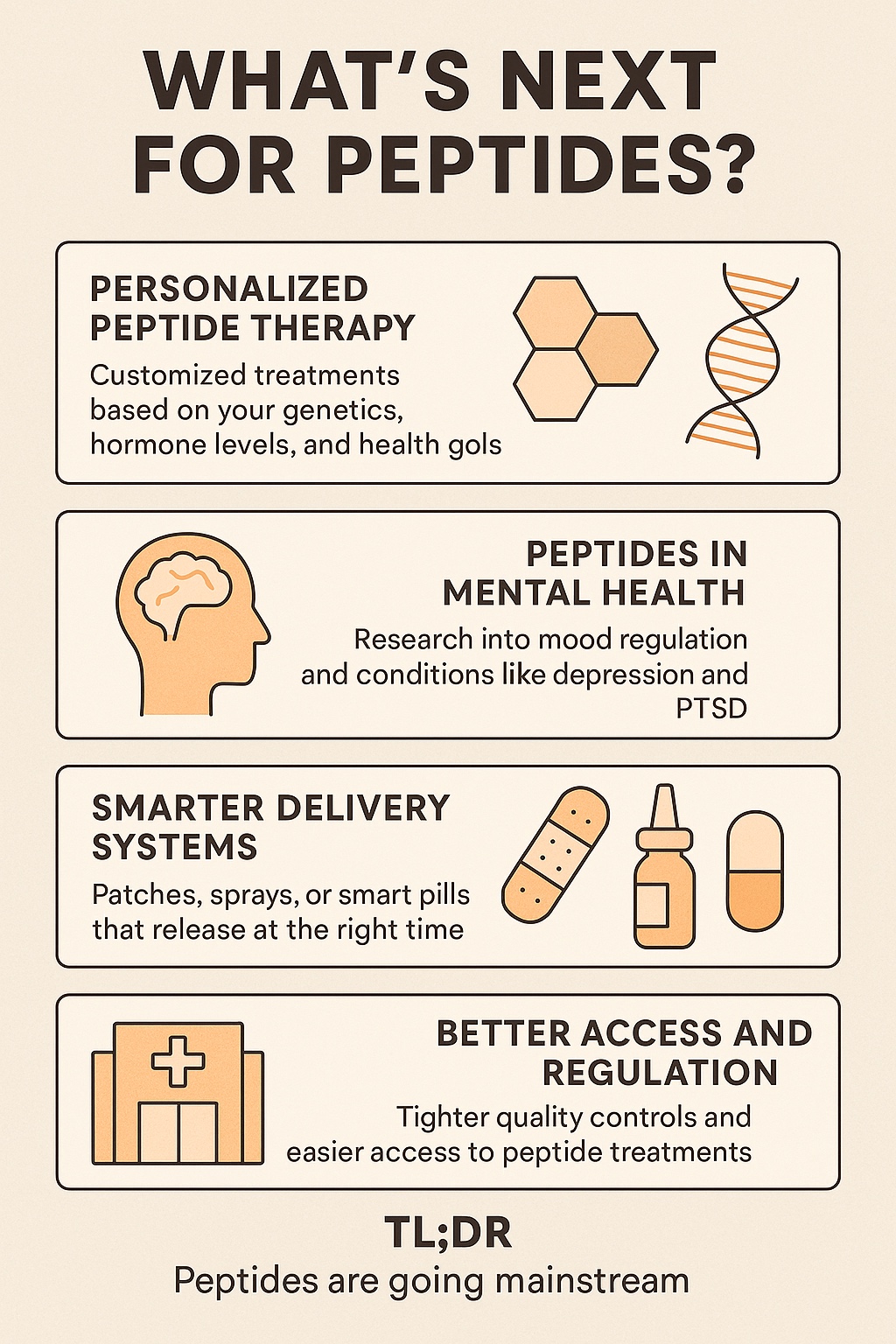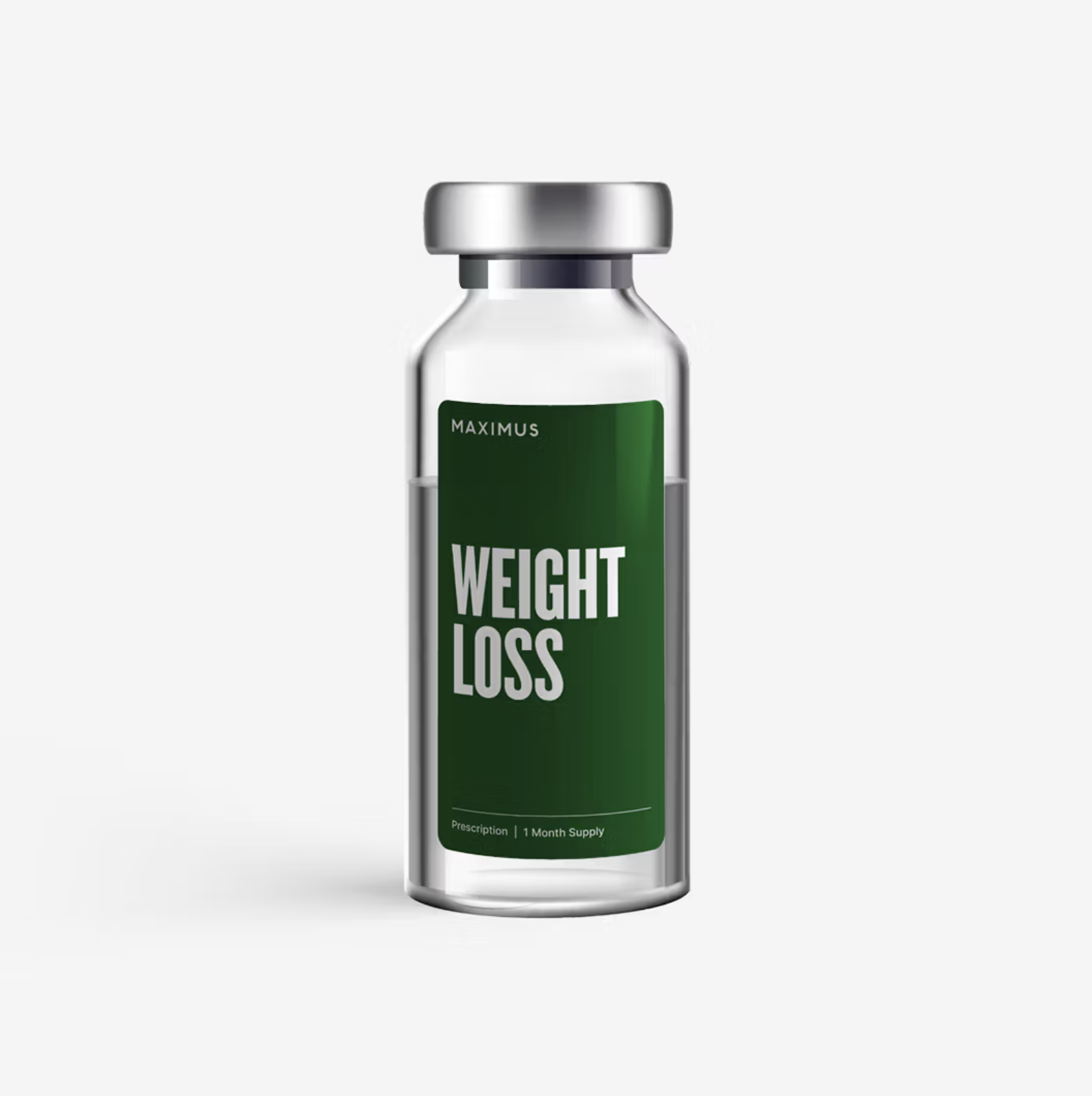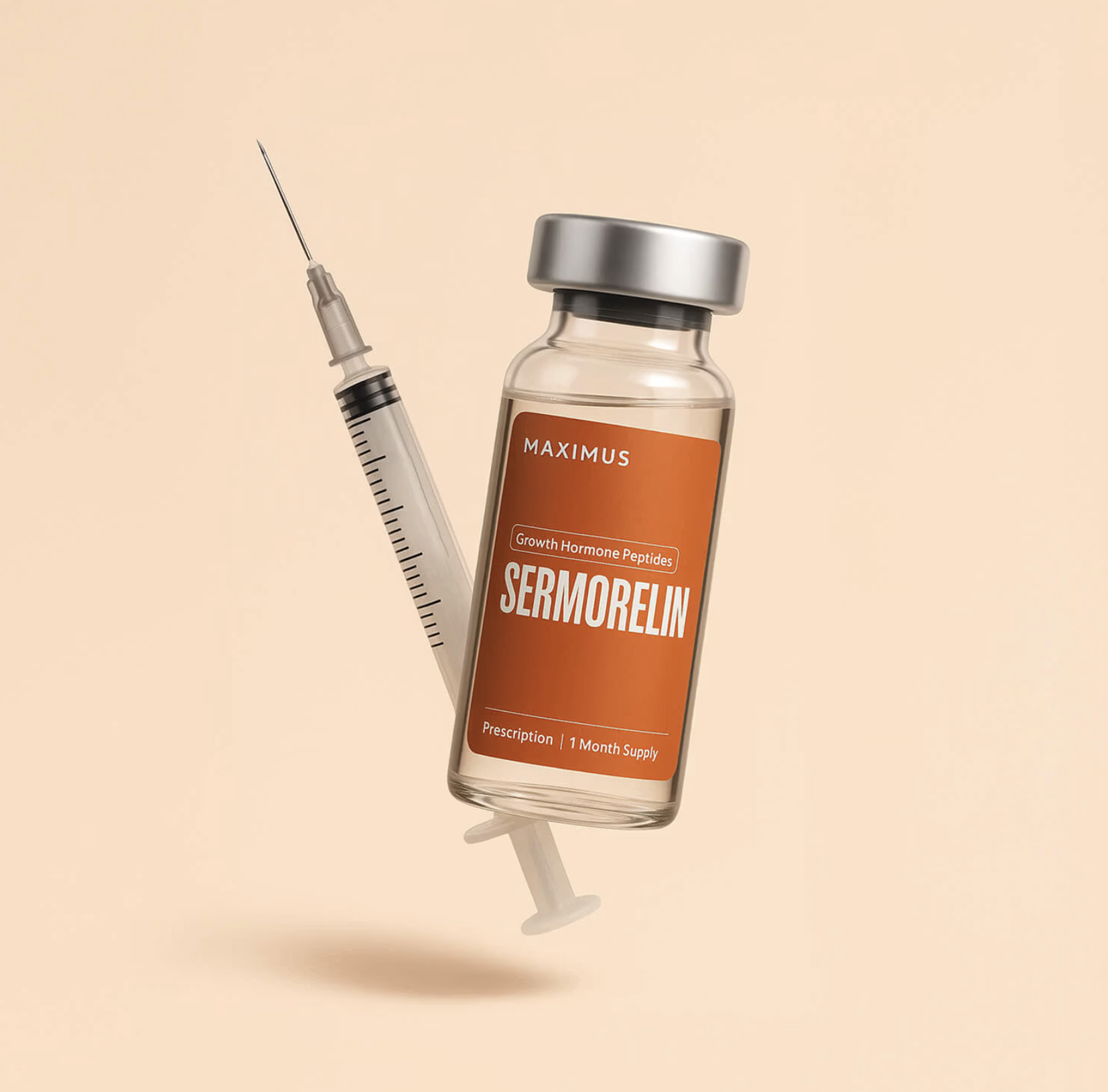You may be asking, “What are peptides?” and even more importantly, “Should I be using Peptides?” In this article, we’ll explore what are peptides, how they work, and their numerous benefits.

Have you ever overheard someone enthusiastically talking about peptides and wondered if they were discussing a new fitness fad, a skincare secret, or some mysterious scientific discovery? You’re not alone! Peptides are making waves across multiple industries—beauty, health, and wellness—but understanding exactly what they are and how they work can seem a bit confusing at first glance.
Be sure to check out our guide to the best BPC-157 Peptides.
Understanding what are peptides can seem daunting, but they’re simply short chains of amino acids that have a variety of applications in beauty and health.
Simply put, peptides are small but powerful molecules made up of amino acids, the building blocks of proteins.
So, what are peptides? They play critical roles in bodily functions and can be synthesized for specific therapeutic effects.
Simply put, peptides are small but powerful molecules made up of amino acids, the building blocks of proteins. While proteins might be the detailed, lengthy novels of the biological world, peptides are more like succinct, impactful short stories, delivering targeted benefits quickly and effectively.
Whether you’re interested in smoother skin, stronger muscles, or even innovative medical treatments, peptides might just be your new favorite discovery. Ready to dive deeper and discover what people like Joe Rogan are talking about? Let’s unravel the mystery behind these mighty molecules!
Note: this guide to peptides is not medical advice and shouldn’t be mistaken for medical advice.
Peptides are fascinating molecules, and knowing what are peptides can change the way we approach skincare and fitness.
To understand what are peptides, let’s delve deeper into their function and types.
What Are Peptides Exactly??

Peptides are short chains of amino acids—aka the same stuff that builds proteins. But unlike proteins, which are big and complex (think: the War and Peace of biology), peptides are more like snappy little novellas. They’re easier for your body to absorb and get to work faster.
Here’s a quick breakdown:
- Amino acids are the building blocks of life.
- When two or more amino acids link together, they form a peptide.
- Stack a bunch of peptides together and you’ve got yourself a protein.
In other words: proteins = long chains of amino acids, peptides = shorter chains with more specific jobs.
From skincare to muscle recovery, the applications of what are peptides are vast and varied.
Discovering what are peptides can unlock new pathways to health and wellness.
Peptides naturally occur in the body, but thanks to modern science, we can now synthesize specific peptides for targeted benefits—like reducing wrinkles, helping heal injuries, or building muscle. Cool, right?
Types of Peptides and Their Uses
So now that you know what peptides are, let’s get into the fun stuff—what they actually do. Because these tiny chains of amino acids aren’t just sitting around looking pretty. They’ve got jobs to do, and they’re surprisingly specialized.
Skincare Peptides
Peptides are basically the overachievers of the skincare world. They help stimulate collagen production, improve skin elasticity, and reduce the appearance of wrinkles. Some peptides even help calm inflammation or boost hydration. In other words: they’re like a spa day in a bottle.
- Matrixyl: Targets wrinkles and improves elasticity
- Argireline: The so-called “Botox in a jar”—helps relax facial muscles
- Copper peptides: Promote healing and improve skin texture
Fitness and Muscle-Building Peptides
I’ve personally taken BPC-157 to help with some joint issues I’ve had.
Athletes and gym junkies love peptides for their potential to boost growth hormone levels, improve muscle recovery, and even increase fat loss. Some peptides are taken as injections, others come in topical or oral forms—but all aim to enhance performance and recovery.
- BPC-157: Known for aiding healing and muscle recovery
- Ipamorelin & CJC-1295: Promote growth hormone release
Medical Peptides
This is where peptides really flex their biotech muscles. Researchers are developing peptides to treat everything from Type 2 diabetes to multiple sclerosis and cancer. Because they’re so targeted, peptides often have fewer side effects than traditional drugs.
- Semaglutide (yes, the one in Ozempic): Used for diabetes and weight loss
- Buserelin: Treats hormone-responsive cancers
- Liraglutide: Helps with appetite control and blood sugar management
These examples are just the tip of the peptide iceberg. Whether you’re slathering them on your face or discussing them with your doctor, peptides are proving to be some of the most versatile molecules in the wellness world.
How Do Peptides Work?

Alright, let’s break down the science without making your brain melt.
Think of peptides as little messengers. When they enter your body (whether through a cream, injection, or supplement), they deliver specific instructions to your cells. It’s like texting your body’s internal team: “Hey, we need more collagen over here!” or “Yo, it’s time to repair that muscle tissue!”
The magic lies in their specificity. Because each peptide is made of a unique sequence of amino acids, it can latch onto certain receptors and trigger very targeted biological responses.
A few examples:
When people ask, what are peptides, they often don’t realize the breadth of their applications.
- In skincare: Some peptides tell skin cells to boost collagen or elastin production, which can smooth wrinkles and firm things up.
- In fitness: Peptides can stimulate growth hormone release or enhance muscle recovery after a tough workout.
- In medicine: Therapeutic peptides may block inflammatory responses, regulate hormones, or mimic naturally occurring chemicals in the body.
To put it simply, what are peptides? They are critical in cellular communication and repair.
It’s like having a personal assistant for your body’s functions—except instead of sending Slack messages, they’re tapping molecular switches to get stuff done.
Are Peptides Safe?
Great question—and one that definitely deserves more than a shrug and a “probably.”

For the most part, peptides are considered safe, especially when used in skincare or under medical supervision. But (and this is a big but), not all peptides are created equal—and not all sources are trustworthy. So let’s break this down:
Topical Peptides (like in skincare)
- Generally very safe.
- Minimal risk of side effects—unless you’re allergic to something in the formula.
- Always patch test if you have sensitive skin, just to be safe.
Injectable or Oral Peptides (for fitness or medical use)
- This is where things get a little more serious.
- Prescription peptides (like Ozempic) are FDA-approved and well-studied.
- BUT: some peptides used for bodybuilding or anti-aging are sold through shady online retailers—these can be low-quality or even unsafe.
Possible Side Effects:
- Redness, irritation, or swelling (especially with injections)
- Nausea or headaches (depends on the peptide)
- Long-term effects are still being studied for many synthetic peptides
Tips for Staying Safe:
- Buy from reputable brands or pharmacies
- Talk to a licensed medical professional before starting any injectable or oral peptide
- Don’t DIY your dosing—seriously, you’re not a mad scientist
Bottom line: peptides can be super safe and effective, but you’ve gotta do your homework and treat them with the same respect you’d give any powerful tool. Or at least more respect than you gave that cheap pre-workout you tried in college.
Our Personal Experience with Peptides: BPC-157 & Sermorelin
Alright, time for some real talk—because yes, we’ve actually tried peptides ourselves. And not just the “slather-it-on-your-skin-and-hope-for-the-best” kind. We’re talking injectable peptides, the kind you store in your fridge and feel vaguely like a mad scientist while prepping.
BPC-157: The Burn Healer
This healed a very bad burn in a matter of weeks. I was sure it was going to scar, but it is 100% gone.
I torched my arm on our Blackstone grill (because of course I did—those things run hotter than the sun when you’re not paying attention). It wasn’t a cute little sizzle either. It was the kind of burn that makes you question your life choices and Google “skin graft” at 10 p.m.
Enter BPC-157. It’s a peptide derived from a protective protein found in the stomach. It works by accelerating tissue repair—stimulating blood vessel growth (aka angiogenesis), reducing inflammation, and enhancing cell migration to the injury site. In simpler terms: it tells your body, “Let’s fix this, stat.”
I, personally, used the “Wolverine Peptide” by Peptidist. It’s delivered via nose and not that painful at all to take.

I used the nose spray version—and honestly, I was shocked at how fast it worked. The redness, the pain, the rawness? Gone in days. The skin looked better than expected, and there’s barely a scar now. It’s like my body went into overdrive with the healing process, thanks to this tiny but mighty peptide.
BPC-157 is a peptide derived from a protein in the stomach that’s known for speeding up healing. I used the injectable version—and honestly, I was shocked at how fast it worked. The redness, the pain, the rawness? Gone in days. The skin looked better than expected, and there’s barely a scar now.
Sermorelin: The Recovery Buddy (With Caveats)
Now onto Sermorelin, a peptide that encourages your body to release more growth hormone. Specifically, it acts as a growth hormone-releasing hormone (GHRH) analog—which means it stimulates the pituitary gland to produce and secrete more of your body’s own natural growth hormone. Instead of injecting synthetic HGH directly (which can come with more serious risks), Sermorelin nudges your internal systems to do the heavy lifting themselves.
I gave this a shot (literally) to deal with persistent back and neck pain—probably from too much time hunched over a laptop pretending to be ergonomic.
And it helped. A lot. I had more energy, less pain, and just felt like things were recovering faster. Sermorelin is thought to improve sleep quality, speed up tissue repair, and even support fat metabolism—all of which can contribute to overall recovery and performance.
But here’s the thing: Sermorelin isn’t risk-free. Like any growth hormone-related peptide, there’s some concern about cancer risk—the idea being that if you already have undetected tumors, more growth hormone could potentially fuel them. That’s why I cycle it: a few weeks on, a few weeks off, and regular check-ins with my doctor.
TL;DR:
- BPC-157: Incredible for injury recovery. That burn didn’t stand a chance.
- Sermorelin: Great for healing and pain relief—but treat it with respect and moderation.
If you’re considering these, talk to a knowledgeable medical provider. Peptides aren’t magic potions, but when used wisely? They can feel pretty close.t magic potions, but when used wisely? They can feel pretty close.
So when we discuss what are peptides, we should acknowledge their vast potential.
Is Ozempic Really a Peptide?
Short answer? Yep. Ozempic is a peptide—but with a twist.

Ozempic’s active ingredient is semaglutide, which is a GLP-1 receptor agonist. That’s fancy talk for a synthetic version of a peptide your body naturally produces: glucagon-like peptide-1. This peptide plays a big role in blood sugar regulation and appetite control. So yes, Ozempic is a lab-made version of a natural peptide—and that makes it part of the peptide family.
Here’s where it gets more interesting:
- Ozempic was originally designed for Type 2 diabetes, helping the body release insulin and control blood sugar levels.
- But then doctors (and eventually TikTok) noticed something else: people on Ozempic were losing a lot of weight.
- Cue the off-label use explosion, with folks using it for weight loss even if they didn’t have diabetes.
So while Ozempic is a peptide, it’s also a lightning rod for controversy, thanks to its meteoric rise in popularity and the ethical questions around access and use.
Bottom line:
Ozempic is a synthetic peptide designed to mimic a naturally occurring hormone—and yes, it works. But like all peptides, it’s powerful stuff and should be treated like a medical treatment, not a casual shortcut. Always, always talk to your doc before jumping on the semaglutide bandwagon.
What are peptides? They are a key factor in both beauty and therapeutic science.
The Future of Peptides
If peptides were a band, they’d be the breakout artist with a ton of buzz and a tour that’s just getting started. The science is still unfolding, but here’s a look at what’s coming down the pipeline:

Personalized Peptide Therapy
With so many benefits, understanding what are peptides becomes crucial.
We’re talking customized treatments based on your genetics, hormone levels, and health goals. It’s like Spotify Wrapped, but for your cells. Scientists are already working on personalized peptide regimens that could help manage chronic illness, improve aging, or optimize athletic performance.
Peptides in Mental Health
Early research is exploring peptides that could help with mood regulation, stress, and even conditions like depression and PTSD. Imagine targeting anxiety with something as precise as a molecular GPS system.
Smarter Delivery Systems
Future peptides might be absorbed through patches, sprays, or even smart pills that release at exactly the right time. No more needles, no more fuss—just science doing its thing, quietly in the background.
Better Access and Regulation
As more research rolls in, expect tighter quality controls and easier access to safe, effective peptide treatments. That means fewer back-alley peptide purchases (yes, that’s a real thing) and more legit options at your pharmacy or dermatologist’s office.
TL;DR
From understanding what are peptides, we can appreciate their role in modern medicine.
Peptides are about to go from niche to mainstream in a big way. Whether it’s in your medicine cabinet, gym bag, or doctor’s office, these molecules are just getting started—and the next few years are going to be wild.
As we dive into the topic, let’s clarify what are peptides and their significance in health.
Understanding what are peptides leads to informed choices in skincare and fitness.
In conclusion, what are peptides? They are essential components in the discussion of health innovations.
So, what are peptides? Let’s explore the future of these exciting molecules.
As we continue to learn what are peptides, the implications for treatment grow.
Finally, let’s not forget the question: what are peptides and how they are shaping our future.





